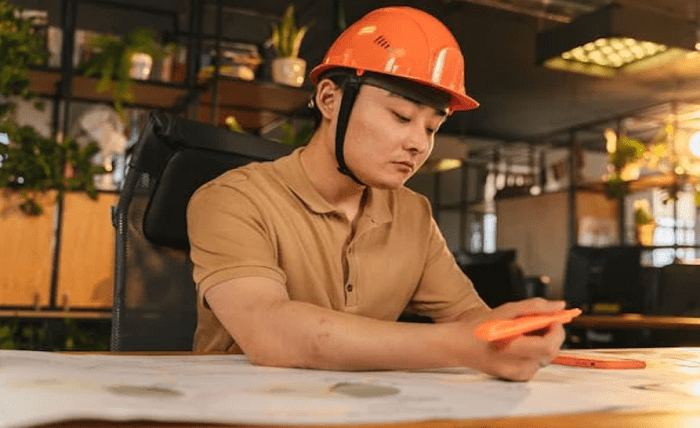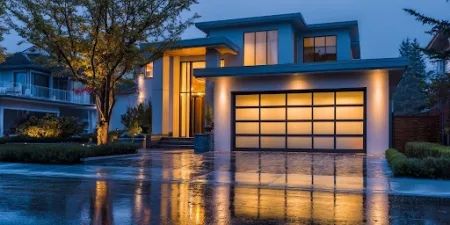In the pursuit of a healthier living environment, the quality of indoor air plays a pivotal role. Surprisingly, the air inside our homes can be two to five times more polluted than outdoor air, according to the Environmental Protection Agency. This staggering fact underscores the critical need for proper air management strategies, including regular cleaning and maintenance, professional installation, and sophisticated HVAC (Heating, Ventilation, and Air Conditioning) solutions.
This awareness is particularly crucial as we spend approximately 90% of our time indoors. Integrating advanced HVAC services is a technical need and a health imperative. This idea from AtHomePrep emphasizes the significance of professional training in ensuring that HVAC systems contribute effectively to indoor air quality.
The Vital Role of HVAC Systems in Indoor Air Quality
The HVAC system is essential to ensure proper emission of vital components in indoor climates, while radical healing of air quality is hardly considered. Such simple systems may be just heating and cooling inside the building, but they can do so much more; they can vastly improve air quality inside buildings. The grading of installation, constant maintenance, and a prompt upgrade will design the system’s efficacy in capturing air pollutants.
Indoor air contamination may result from polluting agents such as dust, pollen, mold, and volatile organic compounds (VOCs). A sound HVAC system will, above all, be of great help in filtering these pollutants. Still, its serviceability is based on the technical and attentiveness skills of the technicians who are supposed to do the installation and maintenance work. Professional HVAC service professionals ensure that units are installed in line with established service standards and best adjusted for the level of air quality the indoor space needs within its atmosphere.
Professional HVAC Services: A Consultation Necessity for Healthier Homes
These professionals are part of the whole system, as they are primarily responsible for maintaining the HVAC systems and making them work substantially better. Certified technicians trained in the nuances of such systems teach proper air filter installation and the use of advanced technology to assist HVAC professionals in controlling and improving air quality. For example, if someone is taken through advanced programs such as the AtHomePrep offering, he will know the latest technologies in the HVAC industry and the health and safety concerns.
Routine maintenance by trained professionals will help avoid common problems that cause low air quality among the rest of the population, such as blocked filters or systems that are not balanced correctly. In addition to the regular checkups, technicians can point the homeowner to future cleanliness problems that they might miss out on besides the leaks or mold in the ductwork areas.
Additionally, HVAC contractors have an edge on the kind of filters to be used and how often such filters should be replaced. For instance, HEPA filters are very efficient in catching particles of 0.3 microns, and the air quality inside homes has dramatically increased. Despite this, air filters need an addition of either the system to manage their flow rate and the correct resistance, and air conditioning engineers are the best source for this kind of upgrade.
HVAC systems have undergone many technological advancements in the past few decades, and they have continued to evolve at a breakneck speed, especially with the advent of AI technology and the Internet of Things (IoT).
The HVAC discipline, which is mainly responsible for controlling human living environmental quality, is constantly advancing as new technologies are introduced that, on the one hand, increase efficiency and, on the other, focus on human indoor air resourcefulness. Up-to-date HVAC systems may contain purifiers of hot air, humidifiers, and special devices, ending pollution by exploring the air. With ample technologies, these are now getting an identity as a necessary means of the fight against indoor pollution.
Professional installation and rigorous maintenance are necessary for these intricate systems to operate smoothly. This involves a combination of smart thermostats that adjust the internal surroundings according to live readings and ensure optimal conditions throughout the day.
Conclusion
As we have faced environmental problems accompanied by the health hazards of inadequate indoor air, there is no proportional difference in the significance of professional HVAC services. These technicians do not fix and install the equipment; they are the frontline gatekeepers of a safe indoor climate with their contemporary knowledge, expertise, and tools at their disposal. Hiring good professionals for HVAC services is synonymous with living happily, being healthy, and being self-satisfied.
In recent years, evidence linking well-working HVAC systems and improved indoor air health has been highlighted; the intervention of qualified technicians who are the product of programs like AtHomePrep is critical and a significant contributing factor to this health benefit. So, as we think through the aspects of healthy and safe indoor places, we will significantly benefit from the experience that certified HVAC professionals bring on board. A primary task of their responsibility includes the all-around process of cooling, air filtering, and air ionization to achieve a positive result for good health.



